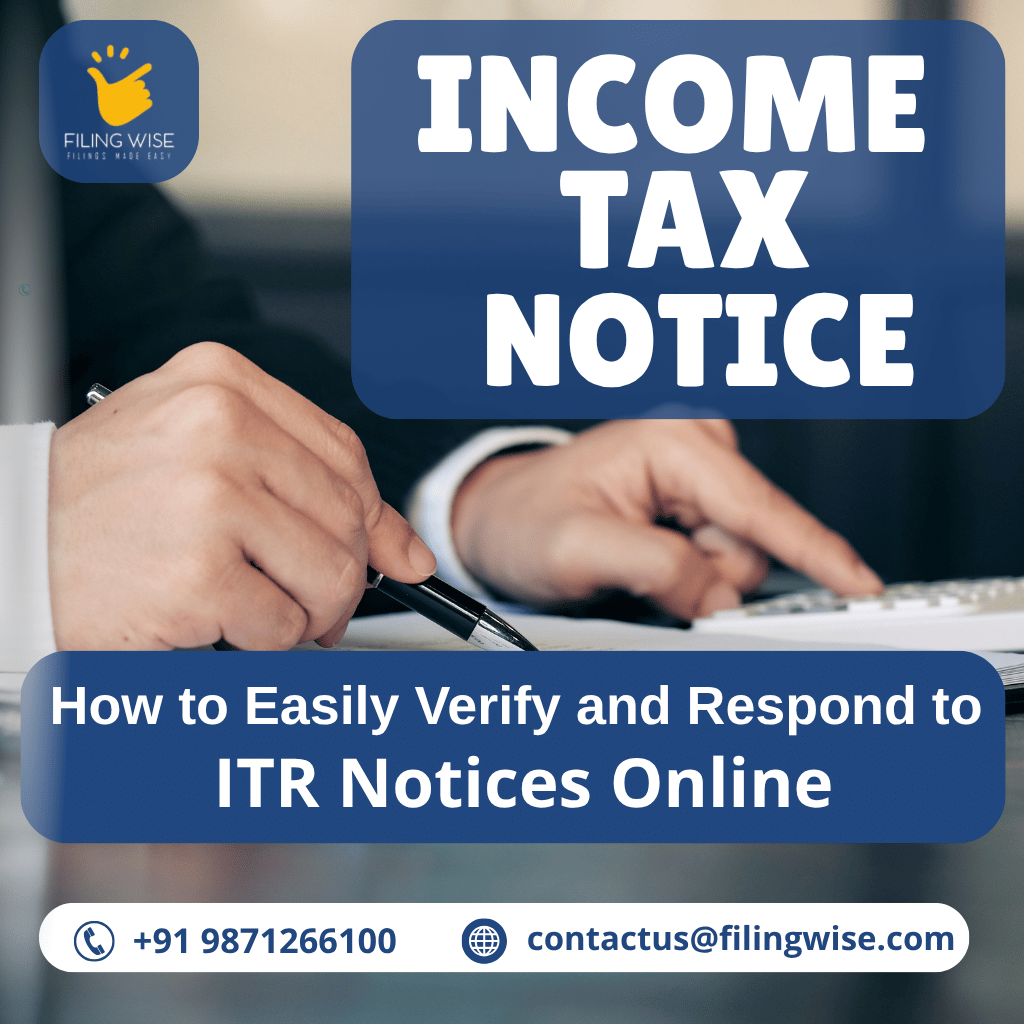Even if you file your Income Tax Return (ITR) on time, you may still receive a notice from the Income Tax Department (ITD). While this might feel stressful, most income tax notices are routine and may simply ask for additional details, clarification, or serve as general information. The key is to verify whether the notice is genuine and respond correctly to avoid penalties or compliance issues.
At Filingwise, we make handling income tax notices simple and stress-free. Our experts help you authenticate ITR notices, draft accurate responses, and guide you through the process so you stay compliant without worry.
Section 142(1) Income Tax Notice: Meaning and When It Is Issued
A Section 142(1) notice is a communication from the Income Tax Department asking for extra details or clarifications about your taxes. It can be sent in two cases:
If you have filed your return: The department may still need more information to verify certain details in your ITR.
If you have not filed your return: The department can issue this notice asking you to submit the required information or file your return.
In short, a Section 142(1) notice helps tax authorities collect accurate information and keep records up to date.
Who Can Issue Section 142(1) Income Tax Notice?
The power to issue a Section 142(1) notice lies with the Assessing Officer (AO). Here’s what it means for taxpayers:
Authority of the AO: Whether you have filed your return under Section 139(1) or not, the AO can issue a notice if more details or clarifications are required.
After the filing deadline: If you miss the due date for filing your return, the AO can still send a notice asking you to file it within the time mentioned—even after the assessment year has ended.
Mandatory response: Even if you are not otherwise required to file a return, receiving a Section 142(1)(i) notice makes it compulsory for you to respond and file.
In short, the Assessing Officer has the legal authority to issue this notice to ensure tax records are complete and accurate.
Reasons for Receiving Section 142(1) Income Tax Notice
A Section 142(1) notice is sent by the Income Tax Department to ensure your tax details are accurate. It may require you to:
File your return if not done on time (and e-verify within 30 days).
Submit documents like invoices, deduction proofs, or bank statements.
Provide clarifications such as asset or liability details.
In short, it helps the department verify your return and maintain compliance.
Steps After Receiving Section 142(1) Income Tax Notice
Read the notice to understand what’s required
File your return if not already filed.
Collect documents like invoices, receipts, or bank statements.
Respond online via the e-Proceedings section of your e-Filing account before the deadline.
How to Respond to Section 142(1) Income Tax Notice Online
If you get a Section 142(1) Income Tax Notice, you must reply online through the e-Filing portal. Here’s how:
Login to the income tax portal with your credentials.
Go to Pending Actions → e-Proceedings.
View your notice and click on Submit Response.
Choose Full Response (all details) or Partial Response (some details).
Upload documents like receipts, statements, or proofs in PDF/Excel/CSV.
Submit & confirm by ticking the declaration box.
Download acknowledgement for your records.
At Filingwise, we help you handle Section 142(1) notices quickly—right from verifying authenticity to filing accurate responses.
What Happens If You Ignore a Section 142(1) Income Tax Notice?
If you’ve received a Section 142(1) notice, it’s important to take it seriously. Even if the documents requested seem irrelevant, you’re still required to comply. Failing to respond can lead to:
A penalty of ₹10,000 for non-compliance.
A Best Judgment Assessment, where the tax officer decides your liability based only on the information they have.
Prosecution, which in some cases can mean up to 1 year of imprisonment.
In rare situations, a search warrant may also be issued.
If you’ve got a notice, don’t panic. At Filingwise, we help you understand the notice, prepare the right documents, and respond correctly so you can avoid penalties and stress.
How to Avoid Section 144(1) Income Tax Notices
A Section 144(1) notice is usually issued when you don’t file your return on time or fail to respond properly to earlier notices. Here’s how you can protect yourself:
File on time & e-verify within 30 days to keep your return valid.
Keep records organized—like invoices, receipts, and bank statements.
Respond quickly to any notice, especially under Section 142(1).
Stay updated by checking the Income Tax portal regularly.
Get expert help from professionals if you’re unsure how to respond.
At Filingwise, we help you stay compliant and handle tax notices smoothly so you don’t have to worry about penalties
Get Expert Help with Your Income Tax Notice
Got an income tax notice? Responding on time is crucial to avoid penalties. At Filingwise.com, our experts help you prepare documents and file your response quickly and accurately


